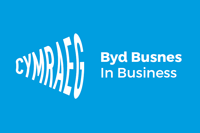Welcome to number 30(!) in our series of Welsh for beginners. It’s an unashamedly Christmas and New Year theme for this issue so have another glass of eggnog, cast aside your inhibitions and have a go!
| English | Welsh | English Pronunciation |
| Merry Christmas | Nadolig Llawen | nah-doll-lig llah1-when |
| Father Christmas | Sion Corn | shaun corr-n |
| Christmas Eve | Noswyl Nadolig | noss-will nah-doll-lig |
| Stocking | Hosan | hoss-ann |
| Decorations | Addurniadau | ath2-urn-yad-eye |
| Christmas jumper | Siwmper Nadolig | shoom-per nah-doll-lig |
| Mince pie | Mins Pei | mince pay |
| Christmas pudding | Pwdin Nadolig | pood-een nah-doll-lig |
| Reindeer | Carw/ceirw (plural) | ca-roo/kay-roo |
| Star | Seren | ser-en |
| Christmas shopping | Siopa Nadolig | shop-ah nah-doll-lig |
| Carol singing | Canu carolau | can-ee car-oll-eye |
| Happy New Year | Blwyddyn Newydd Dda | blue-thin2 neh-with tha2 |

1 for the “ll” sound, place tongue behind teeth and blow gently
2 “th” as in “that”
Thank you for reading ‘Welsh for Beginners – Nadolig Llawen. To view our other Welsh words click here.
To learn more Welsh phrases view The Welsh Gift Shop website here.
A Brief History of Welsh – Introduction
Cymraeg, or Welsh, is a language native to the British Isles, originating from a Celtic language spoken by the ancient Britons. Throughout its history, it has faced numerous challenges to its existence.
Welsh is a Brythonic language, meaning British Celtic in origin and was spoken in Britain even before the Roman occupation. Thought to have arrived in Britain around 600 BC, the Celtic language evolved in the British Isles into a Brythonic tongue which provided the basis not only for Welsh, but also Breton and Cornish. At this time in Europe, Celtic languages were spoken across the continent even as far as Turkey.
The Welsh Language Society
In the 19th century, the Welsh language still did not benefit from the increasing literacy levels amongst the general public. Whilst children were required to attend school, Welsh was not part of the school curriculum. English was still the dominant language as it represented administration and business in an era of imperial expansion.
In the 20th century, there was a growing recognition that the Welsh language and Welsh speakers were being discriminated against. For example, in 1942 the Welsh Courts Act formally addressed the issue of defendants and plaintiffs being forced to speak in English and ushered in a new law allowing Welsh to be used in the courts.
By 1967, a very important and crucial piece of legislation was introduced thanks to the campaigning of many individuals including Plaid Cymru and the Welsh Language Society.
This legislation was largely modelled on the Hughes Parry Report only two years earlier which stated that Welsh needed to have equal status to English in the courts, both written and spoken.
This marked a pivotal moment when the prejudices ushered in during the Tudor period began to be reversed. Today the Welsh language is embraced and spoken at home, in the workplace, in the community and in government. In the 2011 census, over 562,000 people named Welsh as their main language.

